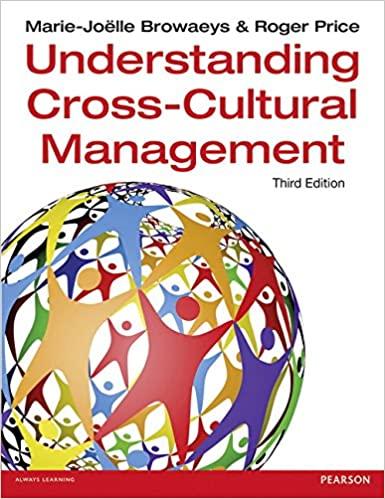Africas movers and shakers sipped fruit cocktails on Wednesday in the glitzy Ritz Four Seasons hotel in
Question:
Africa’s movers and shakers sipped fruit cocktails on Wednesday in the glitzy Ritz Four Seasons hotel in Lisbon as they celebrated a homegrown business success story.
The man they came to honour was Mossadeck Bally, the softly-spoken founder and chairman of the Azalai hotel group in west Africa. Bally received the African business leadership award at a side event of the African Development Bank’s annual meeting taking place in the Portuguese capital.
The occasion at the Ritz represented a different side of Africa, one of high economic growth, growing private equity interest, and successful entrepreneurs. Given the growing importance accorded to the private sector in development – something that was also much in evidence at last month’s UN conference on least developed countries in Istanbul – Bally’s award is indeed a sign of the times.
Born in Niger to Malian parents, Bally, 50, studied in France and the US before returning to Mali.
He started his hotel business in 1994 by buying the Grand Hotel de Bamako when it was privatized by the government. Other hotel acquisitions followed as he established the Azalai chain, which expanded into Burkina Faso, Guinea Bissau and, most recently, Benin. Azalai is now the first African private hotel chain in west Africa, employing 700 people directly and more than 3,500 indirectly.
In his acceptance speech, Bally expressed his confidence in Africa’s potential, oozing quiet optimism. This is the image of Africa that African policymakers are keen to project, a counterpoint to that of conflict, coups and hunger Westerners so often associate with the continent.
Increasingly, African leaders speak of self-reliance and of the need for homegrown solutions to development challenges, moving beyond aid to financing from local capital markets and private equity, and finding growth through regional co-operation.
Fine sentiments, but there are hard facts to overcome. They can be found in the African Development Bank’s 2011 review. Take the obstacles to private sector development: ‘African business is held back by excessive and poorly designed regulation, limited access to finance and a lack of legal mechanisms for enforcing contracts and protecting property rights. Competitiveness is undermined by insufficient access to basic infrastructure such as roads, port facilities, information and communications technology, power and water [. . .] all of this limits the ability of the private sector to invest and grow.’
And despite talk of regional co-operation, trade between African countries remains low, the review notes. Trade within Africa grew from $48 billion in 2005 to $76 billion in 2009, but continues to be held back by cumbersome regulations and poor transport. Africa still looks primarily for markets in the north with only 10–12 per cent bound for African countries. This is half the level in other emerging markets. Moreover, half of Africa’s interregional trade occurs in the southern Africa development community (SADC), in which South Africa trades with its smaller neighbours.
Such constraints make Bally’s success all the more remarkable, and it is unsurprising that he was lionised in Lisbon. He really did succeed against the odds. But it could have been so different. When Bally returned from the US from his studies to work in his father’s business, he was unhappy and wanted to leave during the first six months of his homecoming.
‘I wasn’t intellectually at ease, things were a mess and I applied for a visa to go back to the US’, he told The Guardian . ‘But I thought again, and realised I was being selfish and that my place was to help my father.’
Bally says he has absolutely no regrets about staying. ‘In America, I would have been just a social security number’, he said. ‘And I see more émigrés returning to Africa because they see the place is at a turning point. And despite all the difficulties – a predatory and corrupt state sector – things are really changing. It is much less difficult to do business in Africa now than it was 26 years ago. The private sector really has a historic role to play.’
Questions:
1. To what extent do these views reflect any of the African characteristics put forward by Shepherd Shonhiwa, particularly with regard to the importance of the patriarchy?
2. In what way does the critical review of the Africa Development Bank and the general optimism expressed by Bally and African leaders reflect the essential dilemma which Africa faces, viz. choosing between tradition and modernity?
Step by Step Answer:

Understanding Cross Cultural Management
ISBN: 9781292015897
3rd Edition
Authors: Marie Joelle Browaeys, Roger Price





